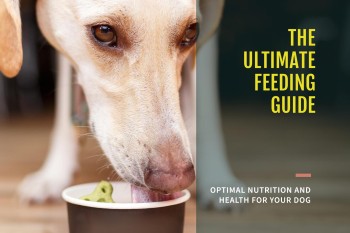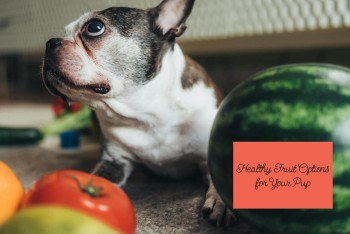🐶 Top Training
Tips for New Puppy Owners 🐶
Bringing home a new
puppy is an exciting time! As veterinary professionals, we want to set you and
your furry friend up for success. Proper training and socialization from a
young age can prevent behavior problems down the road. We've compiled our top
training tips to help new puppy owners build a strong foundation during these
critical first months.
🍼 Preparing For Your Puppy's Arrival
Before your puppy
comes home, take time to truly puppy-proof your house. Look at your home from a
puppy's perspective - anything chewable or breakable within reach is fair game!
Supplies You'll Need
Stock up on these
essentials before pickup or delivery day:
·
🥣 Food and treats: Pick an age-appropriate puppy kibble and
have treats on hand for training. Consider a slow feeder to prevent overeating.
·
💧 Bowls: You'll need a bowl for food and a separate
water bowl. Consider no tip bowls.
·
🛏️ Crate: A crate serves as a cozy den and helps with
potty training. Be sure to buy a crate designed for your puppy's adult size.
·
🚪 Baby gates: Block off areas you don't want your puppy
wandering, like the kitchen or stairs.
·
🧽 Cleaning supplies: Enzyme-based cleaners help eliminate odors
that might attract your puppy to have an accident in the same spot.
Puppy-Proof Your Home
Walk through each room
and survey for safety:
·
🔌 Cover
electrical cords and block access behind TVs and entertainment consoles
·
🗑️ Remove
trash cans or use canned lids to prevent garbage digging
·
🪟 Secure loose
curtains, blinds cords, which can be choking hazards
·
🔨 Keep
household chemicals, medications out of reach
·
🌿 Move house
plants out of reach of curious puppy paws and mouths
·
👢 Pick up
loose shoes, socks, clothing items to prevent chewing
You can't prevent
every accident, but being prepared will give you peace of mind!
🐕 Bringing Puppy Home: Setting Up For
Success
The early days with
your new family member set the tone for your relationship. With patience and
TLC, you’ll be off to a great start!
Choose a Designated Potty Area
As soon as you get
home, take your pup straight to the potty spot you’ve chosen, on leash to keep
their attention. This sets a routine right away.
Choose an easy to
clean area with quick access to the outdoors. Trademark this as their bathroom
with a command like “Go potty.” Take them out frequently to reinforce this is
the right place, not the middle of the kitchen!
Be patient - accidents
will happen during this adjustment period. responded calmly and consistency
they’ll catch on.
Crate Training
The crate prevents
house soiling when you can’t supervise directly. But it’s NOT meant as
punishment - this is your pup's safe space for resting and downtime.
Place the open crate
in a high traffic area, with a comfy blanket and toys inside to make it
welcoming. Feed your puppy in the crate to build a positive association.
Start crate training
slowly. Keep sessions brief at first so they don’t get distressed. Provide
stuffed Kongs or safe chew toys to entertain them.
At night, place the
crate beside your bed to reassure your puppy during this transition. Migrate it
to the desired room over subsequent nights.
Socialize Early And Often
Unlike basic manners,
socialization has a critical window before 16 weeks of age. Expose your puppy
to a wide variety of sights, sounds, people, environments and other animals in
a positive, controlled way during this period.
Introduce them to
friends, neighbors, children, people of different appearances. Bring them on
car rides, walk them downtown, let them experience city sounds. Building
confidence to handle surprises prevents reactive, fearful behavior down the
road.
We recommend
structured puppy socialization classes. Check our puppy preschool programs to
enroll your pup and set them up for success!
🎓 Fundamentals To Teach Your Puppy
Don’t expect too much
too soon - puppies have very short attention spans! Keep lessons short,
engaging and reward-based. End on a positive note before they lose interest.
With 5-10 minute
sessions, you can teach the basics through games and encourage desired
behaviors. Be patient, keep it fun! Repetition over weeks and months leads to
solid behaviors.
Potty Training
Prevent accidents by:
·
⏱ Taking out first
thing in morning, after eating, after waking from nap, every 30 minutes when
active.
·
👀 Supervising
directly inside. Keep them on a leash with you if needed.
·
😊 Praise
immediately after they go in the designated spot! Reward with treats and give a
potty command word like “Hurry up” so they associate.
·
🙅♂️ Avoid scolding after the fact for accidents - it can instill
fear and cause them to hide when needing to go. Just calmly clean it thoroughly
with an enzymatic cleaner.
Hang in there during
this stage - the extra effort pays off with a house-trained adult dog!
Name Recognition
Have tasty treats
ready to reward your pup when you say their name. Call their name excitedly
when they make eye contact. Vary tone and volume, say it when engaging in play
and as you give affection. Soon their name will grab their attention!
Sit
Hold a treat at their
nose level. Slowly move it over their head so their nose follows the treat
upwards and hindquarters drop. Say “sit” then mark and reward. Build duration
by having them hold it briefly before treating. Practice near distraction to
strengthen it.
Come
Run away excitedly so
they chase you, then reward with praise and treat. Build by calling when
playing, during walks, and when they are focused on something interesting to
break that focus. Always make coming fun!
Leash Manners
Take them on lots of
walks in safe areas to experience sights and sounds. Bring HIGH value treats.
Randomly reward for attention checks back to you or for staying near your side.
If they pull, stop movement. Praise and repeat when the leash is loose again.
This takes time and consistency!
Bite Inhibition
Puppies mouth
everything when teething. Say “ow!' and stop play for 15-30 seconds when those
needle teeth pinch. Offer appropriate chew toy instead. Be consistent so they
learn soft mouth behavior. Frozen carrots or wet washcloths also soothe sore
gums!
Handling
Handle puppies
frequently - touch feet, ears, mouth, tail regularly. Reward tolerance to
grooming like nail trims and brushing. Introduce veterinary exams through play
and praise cooperation. This prevents sensitivity as they grow.
Building trust and
confidence prevents many adult behavior issues down the road. Set them up for
success starting now!
🐶 Ongoing Training In The Puppyhood
Phase
In the early months,
focus less on structured training sessions but more on positive experiences.
Let your puppy explore environments, introduce new surfaces, sounds, people,
supervised interaction with vaccinated puppy friends.
Capture and reward
desirable behaviors as they happen naturally. Respond calmly to typical puppy
antics like play biting, demand barking, house soiling accidents - these are
all part of the process!
Above all, shower them
with patience, love and appreciation for their cute puppy selves! Raising a
confident, friendly dog is very rewarding.
We can't wait to see
your pup growing over their wellness visits. Bring your questions - we are here
to help set you both up for success!
Teach Impulse Control
Once they master the
basics like sit, down, stay, "leave it", you can strengthen their
self-restraint by rewarding patience and good choices.
·
🚪 Have them
sit politely before going outdoors, receiving dinner, entering/exiting the home
or car.
·
🎾 Practice
addressing the human first before chasing a ball or stick thrown, then release
to retrieve only after "ok" cue.
·
👄 Have them
ignore food items on the floor they can't have. Mark and reward lack of
interest.
·
🏃♂ Teach polite walking as their desire to pull builds. Stop
forward motion whenever the leash gets tight. Resume only when it's loose again.
Handling and Grooming
Puppies often resist
handling of paws, ears and mouth as they grow. Make it fun! Provide tiny treats
as you briefly touch sensitive areas, keeping sessions short. Work up slowly to
mimic vet exams - reward tolerance.
Introduce grooming
needs like nail trims, brushing and wiping faces. Go slow with positive
association. Having them comfortable with handling prevents vet visit
struggles!
Car Travel
Accustom your puppy to
car travel early on to prevent anxiety later. Use a secured crate or restraint
harness in the back seat for safety. Bring toys and treats to make it positive.
Take them on short
errands at first before building to longer trips. Calm praise and treats
prevent carsickness. Never scold anxious behavior - it will worsen it! Stay
upbeat and make it fun.
Advanced Cues
Once the basics like
sit, stay, down, come have duration, practice them in more challenging
environments with distractions expected of adult dogs.
Vary location - front
yard, park, pet stores. Have strangers request cues. Walk off leash trails,
rewarding check-ins. Solid real world behavior takes time and creativity - keep
it fun!
Setbacks happen!
Regress to easier versions if needed, rebuild confidence and trust in the cue.
Increase challenge gradually. Growth often happens in waves during puppyhood.
Stay positive!
🐩 Common Hurdles In Puppy Raising
Puppies bring joy but
also headaches at times. Know you aren't alone in struggling with typical
challenges like:
Demand Barking And Nipping
Puppies learn to use
their voice and mouth to get needs met by littermates. Redirect gently with
appropriate chews when those needle teeth come out. Provide mental stimulation
through games, training. Avoid scolding - it often escalates frustrated
behavior. Stay calm and reinforce quiet moments.
Submissive Urination
Some puppies leak
urine out of excitement when greeting or feeling intimidated. Ignore this
submissive behavior - scolding worsens anxiety. Greet pup calmly, build
confidence through reward-based training. It often resolves by 1 year of age.
Protect your floors in the meantime!
Separation Anxiety
Dogs are social
animals. Puppies often cry, bark and soil the home when left alone - they panic
being apart from you. Ease this transition with delicious food puzzles, calming
music and building alone time very gradually. Never scold anxiety! Reach out if
struggling - we offer counseling and medications to help.
The trying times are
temporary but the bond built through overcoming hurdles together lasts a
lifetime. You've got this!
🩺 Health And Veterinary Care
Raising a healthy,
happy pup requires preventative care you can easily provide at home, and
routine veterinary services.
At Home Care
·
🍽️ Feed
age-appropriate commercial or veterinary therapeutic diet
·
💊 Administer
prescribed preventatives like flea/tick and heartworm medication
·
✂️ Trim nails as needed (avoid quicking)
·
🏋️ Ensure
adequate exercise opportunities based on age and breed
·
🛏️ Wash
bedding, pick up waste promptly from potty area
·
🧷 Groom coat
regularly - wipes for faces, brushing
·
🟡 Avoid
sharing human foods, toxins, small chokeable items
·
🥰 Give them
your time, attention and affection!
Routine Veterinary Services
·
🩹 Puppy exam series: Multiple visits assess growth, discuss
training
·
💉 Vaccination series: Critical for immunity against contagious
diseases
·
🩺 Spay/neuter surgery: Prevents unwanted litters, reduces some
health risks
·
🏥 Prompt attention for
illness: Puppies decline
quickly - call us with concerns
·
🩸 Labwork: Screens for parasites and disease not
prevented by vaccines
·
☎️ 24/7 ER access: We offer after hours triage and emergency care guidance
Building a
relationship with your veterinary team provides a safety net and ensures your
puppy stays happy and healthy as they grow!
🎉 Graduating Puppyhood
The first year flies
by in the blink of an eye. The tiny fluffball you brought home transforms into
a teenager pushing boundaries to develop adult dog manners and judgment.
With a strong
foundation from consistent, positive training they have so much potential!但 Set realistic
expectations - adolescence brings regression. Stick with what works, power
through thetrying phases and you’ll end up with an incredible companion.
We're honored to
support you and your puppy through the adventures ahead. Please reach out
anytime for behavior troubleshooting, health concerns or just to give us cute
photo updates!


















